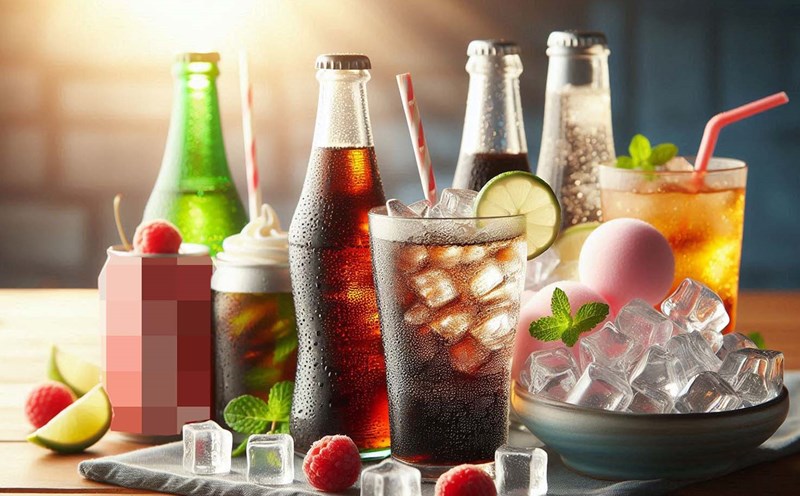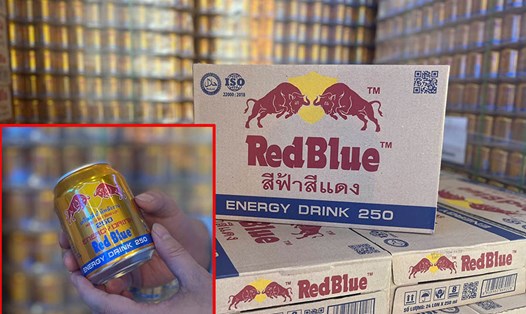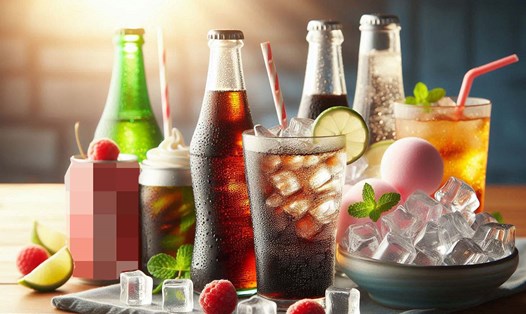Dr Ekta Singhwal, nutritionist at Ujala Cygnus Group of Hospitals (India) - explains that when we drink carbonated drinks, the carbonation process releases carbon dioxide (CO2), creating a tingling sensation in the mouth and throat.
As carbon dioxide warms in the stomach, it can lead to belching and in some cases heartburn.
Dr. Ekta Singhwal points out some specific biological changes that occur when the body consumes carbonated drinks:
Increased blood sugar
Carbonated soft drinks often contain high amounts of sugar, especially simple sugars such as glucose and fructose. When consumed, they are quickly absorbed by the body and cause a spike in blood sugar levels.
To process this sugar, the pancreas must produce insulin, a hormone that helps lower blood sugar levels. However, if consumed in excess, the body can become resistant to insulin, leading to the risk of type 2 diabetes.
Short term energy boost
The sugar in carbonated soft drinks provides a quick burst of energy, helping the body feel alert and energized for a short period of time. However, once this sugar is metabolized, the body may feel tired and lacking in energy, creating an energy crash effect.
Effects on stomach and digestive system
Carbonic acid: When you drink carbonated soft drinks, the carbon dioxide gas creates a fizzing effect in your stomach, which can cause bloating and gas. This happens when the gas dissolves in your stomach, creating carbonic acid, a substance that can increase stomach acidity.
Phosphoric acid: Carbonated soft drinks also contain phosphoric acid, which can lower the pH in the stomach, affect digestion, and may cause heartburn or damage the stomach lining if consumed in excess.
Impact on oral health
Carbonated soft drinks contain sugar and acid, which can increase the risk of tooth decay. Sugar provides an environment for bacteria in the mouth to grow, while acid can erode tooth enamel, making teeth more susceptible to damage.
Increased blood pressure and heart rate
Many soft drinks also contain caffeine, a stimulant that can increase heart rate and blood pressure. Caffeine works by stimulating the central nervous system, increasing alertness and energy levels. However, if consumed in excess, caffeine can lead to insomnia, anxiety, and may be harmful to the heart in the long run.
Impact on bones
Carbonated soft drinks, especially those containing phosphoric acid, can reduce bone density if consumed over a long period of time. This happens because phosphoric acid can reduce the body's ability to absorb calcium.
Impact on weight
When you consume carbonated soft drinks, calories from sugar are absorbed into your body. If you do not consume enough energy, your body will store calories as fat, causing weight gain over time. The habit of drinking carbonated soft drinks can lead to overweight or obesity if you do not control your diet properly.
Dry mouth and dehydration
The caffeine in soft drinks can have a diuretic effect, causing your body to lose water. If you drink too much, you may experience dry mouth and may upset the water balance in your body.









